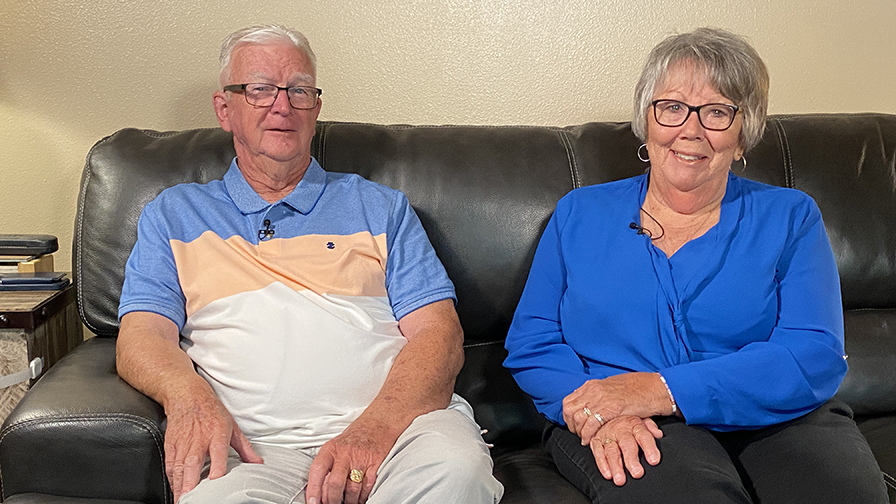
A few years ago, Frank Severson would’ve had to spend more than three hours in his car on multiple days per week driving to receive treatment for cancer. Now he’s able to get the care he needs at his local hospital, thanks to Intermountain’s tele-oncology program. The service is helping patients across the Intermountain West stay in their local community for care.
Frank receives his cancer treatment at Heber Valley Hospital just four miles away from his home in Charleston, Utah, instead of having to travel to the Salt Lake area. Heber Valley started participating in tele-oncology last year.
Oncologist David Gill, MD, video chats with Frank from his office at Intermountain Medical Center. Dr. Gill uses video consultations and state-of-the-art tools to monitor Frank’s care, while trained caregivers at Heber Valley provide the needed infusion therapy, lab tests, imaging exams, and other services.
“The infusion staff at Heber Valley is the best, and I vote for them 100 percent,” Frank says.
Dr. Gill says tele-oncology helps patients who would’ve had to take a day off work to travel, as well as those who can’t make the drive because of health or weather.
“I’ve had patients who are getting more care than in the past when they just couldn’t get over a mountain pass in the winter,” he says. “Our goal is to really bring the same level of cancer care someone would get if they live in Salt Lake to those living in rural areas.”
Tele-oncology allows Intermountain’s cancer specialists to offer patients a broad spectrum of cancer care, from early detection through treatment, close to home. Many patients can complete their entire treatment course without ever seeing their doctor in person. The program has been growing steadily over the last few years, and that growth has accelerated during the pandemic as more patients have grown accustomed to virtual care.
Derrick Haslem, MD, is the associate medical director of Intermountain’s Oncology Clinical Program and leads the tele-oncology program. He says he was initially unsure if it would work to provide cancer care services remotely, but he’s been amazed by the program’s success.
“Oncology is a very high-touch, high-feel specialty, and at first I didn’t think there was any way possible I’d be able to deliver high-quality care without being able to wrap my arm around a patient and be there to comfort them,” he says. “But it turns out because of the technology, the advancements in cancer treatments, and because of our highly-aligned outreach partners, tele-oncology ends up being a very, very good experience for the patient, and also the provider.”
Although Frank has never met Dr. Gill in person, he says he thinks they’ve developed just as good of a rapport as they’d have in person—but without the extra travel time. He says this time-savings gives him the freedom to do what he likes, like going on trips and spending time with his wife, three children, seven grandchildren, and four great-grandchildren.
Intermountain offers telehealth oncology services at 11 rural locations in Utah, Idaho, Wyoming, Nevada, and Montana—including four within Intermountain and seven outside the Intermountain system. Two more sites are set to go live in the next few months, and more are likely to be added in the future.
Watch Frank’s story on KSL TV and Fox13 | Learn more about tele-oncology

